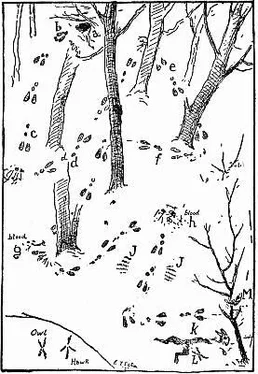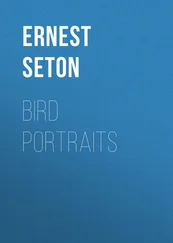Ernest Seton - Woodland Tales
Здесь есть возможность читать онлайн «Ernest Seton - Woodland Tales» весь текст электронной книги совершенно бесплатно (целиком полную версию без сокращений). В некоторых случаях можно слушать аудио, скачать через торрент в формате fb2 и присутствует краткое содержание. Год выпуска: 2007, Жанр: Природа и животные, Сказка, на английском языке. Описание произведения, (предисловие) а так же отзывы посетителей доступны на портале библиотеки ЛибКат.
- Название:Woodland Tales
- Автор:
- Жанр:
- Год:2007
- ISBN:нет данных
- Рейтинг книги:4 / 5. Голосов: 1
-
Избранное:Добавить в избранное
- Отзывы:
-
Ваша оценка:
- 80
- 1
- 2
- 3
- 4
- 5
Woodland Tales: краткое содержание, описание и аннотация
Предлагаем к чтению аннотацию, описание, краткое содержание или предисловие (зависит от того, что написал сам автор книги «Woodland Tales»). Если вы не нашли необходимую информацию о книге — напишите в комментариях, мы постараемся отыскать её.
Woodland Tales — читать онлайн бесплатно полную книгу (весь текст) целиком
Ниже представлен текст книги, разбитый по страницам. Система сохранения места последней прочитанной страницы, позволяет с удобством читать онлайн бесплатно книгу «Woodland Tales», без необходимости каждый раз заново искать на чём Вы остановились. Поставьте закладку, и сможете в любой момент перейти на страницу, на которой закончили чтение.
Интервал:
Закладка:
WOODLAND TALES
BY ERNEST THOMPSON SETON

WITH 100 DRAWINGS
BY
THE AUTHOR
PREFACE
To the Guide
These Mother Carey Tales were written for children of all ages, who have not outgrown the delight of a fairy tale. It might almost be said that they were written chiefly for myself, for I not only have had the pleasure of telling them to the little ones, and enjoying their quick response, but have also had the greater pleasure of thinking them and setting them down.
As I write, I look from a loved window, across a landscape that I love, and my eye rests on a tall beautiful pine planted with my own hands years ago. It is a mass of green fringes, with gem-like tips of buds and baby cones, beautiful, exquisitely beautiful, whether seen from afar as a green spire, or viewed close at hand as jewellery. It is beautiful, fragile and—unimportant, as the world sees it; yet through its wind-waved mass one can get little glimpses of the thing that backs it all, the storm-defying shaft, the enduring rigid living growing trunk of massive timber that gives it the nobility of strength, and adds value to the rest; sometimes it must be sought for, but it always surely is there, ennobling the lesser pretty things.
I hope this tree is a fair image of my fairy tale. I know my child friends will love the piney fringes and the jewel cones, and they can find the unyielding timber in its underlying truth, if they seek for it. If they do not, it is enough to have them love the cones.
All are not fairy tales. Other chapters set forth things to see, thing to do, things to go to, things to know, things to remember. These, sanctified in the blue outdoors, spell "Woodcraft," the one pursuit of man that never dies or palls, the thing that in the bygone ages gifted him and yet again will gift him with the seeing eye, the thinking hand, the body that fails not, the winged soul that stores up precious memories.
It is hoped that these chapters will show how easy and alluring, and how good a thing it is.
While they are meant for the children six years of age and upward, it is assumed that Mother (or Father) will be active as a leader; therefore it is addressed, first of all, to the parent, whom throughout we shall call the "Guide."
Some of these stories date back to my school days, although the first actually published was "Why the Chicadee Goes Crazy Twice a Year." This in its original form appeared in "Our Animal Friends" in September, 1893. Others, as "The Fingerboard Goldenrod," "Brook-Brownie," "The Bluebird," "Diablo and the Dogwood," "How the Violets Came," "How the Indian Summer Came," "The Twin Stars," "The Fairy Lamps," "How the Littlest Owl Came," "How the Shad Came," appeared in slightly different form in the Century Magazine , 1903 and 1904.
My thanks are due to the Authorities of the American Museum who have helped me with specimens and criticism; to the published writings of Dr. W. J. Holland and Clarence M. Weed for guidance in insect problems; to Britton and Browne's "Illustrated Flora, U. S. and Canada"; and to the Nature Library of Doubleday, Page & Co., for light in matters botanic; to Mrs. Daphne Drake and Mrs. Mary S. Dominick for many valuable suggestions, and to my wife, Grace Gallatin Seton, for help with the purely literary work.
Also to Oliver P. Medsger, the naturalist of Lincoln High School, Jersey City, N. J., for reading with critical care those parts of the manuscript that deal with flowers and insects, as well as for the ballad of the Ox-eye, the story of its coming to America, and the photograph of the Mecha-meck.
INTRODUCTION
Mother Carey
All-mother! Mater Cara! I have never seen you, but I hungered so to know you that I understood it when you came, unseen, and silently whispered to me that first time in the long ago.
I cannot tell the children what you look like, Mother Carey, for mortal eye hath never rested on your face; and yet I can offer them a portrait, O strong Angel of the Wild Things, neither young nor old—Oh! loving One that neither trembles nor relents!
A mink he was, a young mink and foolish. One of a happy brood, who were seeing the world with their mother—a first glimpse of it. She was anxious and leading, happy and proud, warning, sniffing, inviting, loving, yet angersome at trivial disobedience, doling out her wisdom in nips and examples and shrill warnings that all heeded; except this one, the clever fool of the family, the self-satisfied smart one. He would not be warned, the thing smelt so good. He plunged ahead. Mother was a fool; he was wiser than Mother. Here was a merry feasting for him. Then clank! The iron jaws of a trap sprang from the hiding grass, and clutched on his soft young paws. Screams of pain, futile strainings, writhings, ragings and moanings; bloody jaws on the trap; the mother distraught with grief, eager to take all the punishment herself, but helpless and stunned, unable to leave; the little brothers, aghast at this first touch of passion, this glimpse of reality, skurrying, scared, going and coming, mesmerized, with glowing eyes and bristling shoulder-fur. And the mother, mad with sorrow, goaded by the screaming, green-eyed, vacant-minded, despairing—till a new spirit entered into her, the spirit of Cara the All-mother, Mother Carey the Beneficent, Mother Carey the wise Straightwalker. Then the mother mink, inspired, sprang on her suffering baby. With all the power of her limbs she sprang and clutched; with all the power of her love she craunched. His screams were ended; his days in the land were ended. He had not heeded her wisdom; the family fool was finished. The race was better, better for the suffering fool mink; better for the suffering mother mink.
The spirit left her; left her limp and broken-hearted. And away on the wind went riding, grimly riding her empire.
Four swift steeds for riding, has she, the White Wind, the West Wind, the Wet Wind and the Waking Wind. But mostly she rides the swift West Wind.
She is strong, is Mother Carey, strong, wise, inexorable, calm and direct as an iceberg. And beneficent; but she loves the strong ones best. She ever favours the wise ones. She is building, ceaselessly building. The good brick she sets in a place of honour, and the poor one she grinds into gravel for the workmen to walk on.
She loves you, but far less than she does your race. It may be that you are not wise, and if it seem best, she will drop a tear and crush you into the dust.
Three others there be of power, like Mother Carey: Maka Ina who is Mother Earth; El Sol, the Sun in the Sky, and Diablo the Evil Spirit of Disease and Dread. But over all is the One Great Spirit, the Beginning and the Ruler with these and many messengers, who do His bidding. But mostly you shall hear of Mother Carey.
It is long ago since first I heard her whisper, and though I hear better now than then, I have no happier memory than that earliest message.
"Ho Wayseeker," she called, "I have watched your struggle to find the pathway, and I know that you will love the things that belong to it. Therefore, I will show you the trail, and this is what it will lead you to: a thousand pleasant friendships that will offer honey in little thorny cups, the twelve secrets of the underbrush, the health of sunlight, suppleness of body, the unafraidness of the night, the delight of deep water, the goodness of rain, the story of the trail, the knowledge of the swamp, the aloofness of knowing,—yea, more, a crown and a little kingdom measured to your power and all your own.
"But there is a condition attached. When you have found a trail you are thereby ordained a guide. When you have won a kingdom you must give it to the world or lose it. For those who have got power must with it bear responsibility; evade the one, the other fades away."
Читать дальшеИнтервал:
Закладка:
Похожие книги на «Woodland Tales»
Представляем Вашему вниманию похожие книги на «Woodland Tales» списком для выбора. Мы отобрали схожую по названию и смыслу литературу в надежде предоставить читателям больше вариантов отыскать новые, интересные, ещё непрочитанные произведения.
Обсуждение, отзывы о книге «Woodland Tales» и просто собственные мнения читателей. Оставьте ваши комментарии, напишите, что Вы думаете о произведении, его смысле или главных героях. Укажите что конкретно понравилось, а что нет, и почему Вы так считаете.




